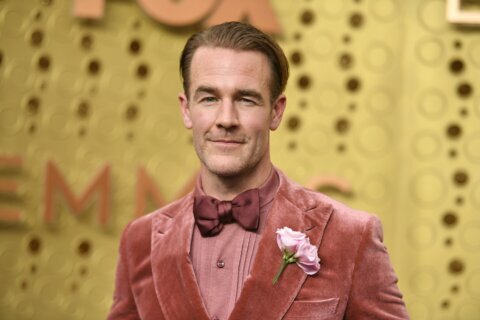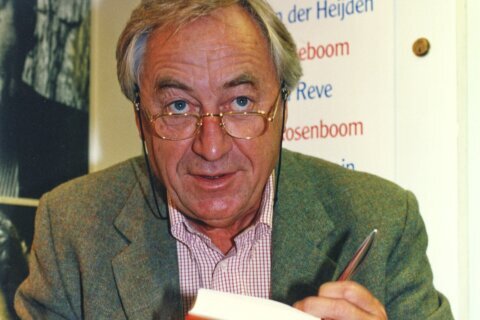Hear our full conversation on my podcast “Beyond the Fame.”
In 2006, just a year after Hurricane Katrina devastated New Orleans, Spike Lee delivered the definitive documentary with “When the Levees Broke: A Requiem in Four Acts.”
Nearly two decades later, Edward Buckles Jr. asks what happened to the generation of kids who grew up with that trauma in the documentary “Katrina Babies” on HBO Max.
Buckles told WTOP he started making the film in college: “My cousin, Tina, called one holiday and was very emotional. … She said, ‘One day I’ll let you read my diary and make a film about me.’ … It made me propose a question: How does that type of trauma impact a kid? What happens if that kid doesn’t get that trauma out?”
Raised in New Orleans, Buckles was 13 years old when Katrina hit, and was “fortunate enough to evacuate.” Normally, he said, they’d ride out storms — “We would just board up the house and get canned goods and candles.” But this time, “My mom wanted to leave New Orleans because she had a bad feeling about this storm.”
So, his family drove 14 hours north — a trip that would take two hours without hurricane traffic — to stay at a flea market that was transformed into a temporary shelter.
“All I remember is going to sleep that night and waking up the next morning and there was crazy news cameras there,” Buckles said. “A television with the news was on and that’s when I saw New Orleans was underwater and that’s when I realized this wasn’t a normal storm and I wasn’t going home. … It was a pretty intense thing to experience at 13.”
He began worrying about his cousins who stayed behind. “I knew that my cousins’ neighborhood was underwater. I’ll never forget this older woman, I asked her, ‘Wait — if Circle Food Store is underwater, what about everybody who stayed back?’ She turned to me and said, ‘Everybody who stayed in New Orleans is dead,’ and I just started crying.”
Thankfully, his cousins survived, as did other lucky residents who punched holes into their roofs. The film plays 911 calls with chilling cries — “We’re going to drown in our attic!” — as Buckles interviews survivors who describe waving to helicopters that never landed. He also uses animation to show families boarding rescue boats inside their living rooms.
Even so, surviving meant being crammed into makeshift shelters, from Domino’s pizza parlors to the Superdome, for many days. The film shows frustrated families screaming for help into news cameras. It also interviews an evacuee who developed a tumor after living in a FEMA trailer filled with formaldehyde.
“Hurricane Katrina was a natural disaster, but the way that it was handled, the actual recovery, it was not natural at all; it was very unnatural and it was very criminal,” Buckles said. His film exposes failures from local, state and federal government, causing rapper Kanye West’s controversial quip, “George Bush doesn’t care about Black people.”
“I don’t think that he was only talking about George Bush. I think he was talking about America; I think he was talking about our government, and I think it was warranted,” Buckles said. “It was Black people on the streets dead and alive days after Hurricane Katrina — starving, hot, no power, no water. … There should have been a faster response.”
He even documents the stark racial bias in media coverage: “If you see a white family, you say that they’re looking for food, but if you see a Black family, you say that they’re looting. … When it came to white families going into stores and grabbing food, they were doing what they had to do to survive, but when you saw Black families it was ‘criminals.'”
While the film is a grand social commentary on institutional racism and gentrification, the real power of “Katrina Babies” is its deeply personal, cathartic interviews with residents.
“It wasn’t until I interviewed the first group of people from the community that I realized, wow, this is really heavy stuff,” Buckles said. “Meisha Williams, one of my close friends — she’s the first person to say, ‘I’ve never talked about this stuff before because no one ever asked.’ That was new to me. I didn’t realize that was one of the throughlines of the film.”
In the end, he hopes the doc will help a generation heal: “These were not just interviews; these were almost like therapy. I’ve had certain people tell me, ‘Man, that just felt like a therapy session. I didn’t even realize I had all that stuff bottled in.’ Hearing all of those stories, talking to my peers and my students — it allowed me to recognize my own trauma.”
Hear our full conversation on my podcast “Beyond the Fame.”








